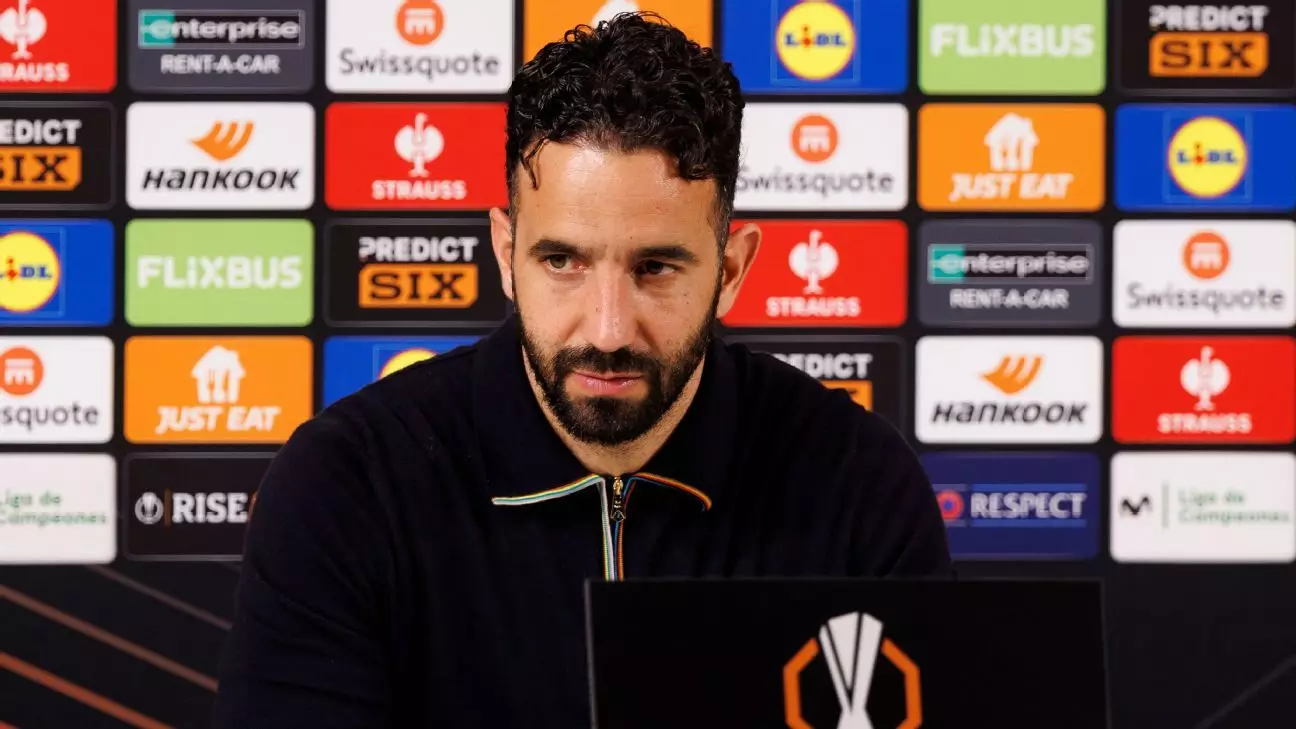In a remarkable display of leadership and compassion, Ruben Amorim has taken it upon himself to secure the well-being of his support staff by covering their families’ expenses for the upcoming Europa League final in Bilbao, Spain. Faced with Manchester United’s unyielding cost-cutting initiatives, which include significant layoffs and financial restrictions that affect ticket allocations, Amorim’s proactive stance resonates with a deep sense of responsibility. When informed that his coaching staff would need to pay for their own tickets, Amorim took the bold step of utilizing his own resources, ensuring that 30 members of his backroom team could enjoy this pivotal match alongside their loved ones.
Contrast in Club Cultures
This situation starkly contrasts with the actions of other elite clubs like Paris Saint-Germain, which has chosen to allocate tickets for 600 of its staff members to attend their upcoming Champions League final. Such decisions speak volumes about the varying philosophies within football clubs. While PSG invests in creating a fortunate and appreciative environment for its workforce, Manchester United seems ensconced in a penny-pinching mentality that undermines the morale of its dedicated personnel. With rumors swirling around potential job cuts at Old Trafford, the club’s choices appear even more disheartening, revealing a fundamental disconnect between management’s approach and the emotional investment of those who strive daily to maintain the club’s legacy.
The Price of Glory
As Manchester United gears up for its match against Tottenham Hotspur on May 21, the stakes are daunting. Victory not only means lifting a trophy but also securing a coveted position in the Champions League for the following season. This promise of glory adds an extra layer of pressure on both players and staff alike. Yet, for the coaching staff, the reality is bittersweet; while they work tirelessly to achieve success on the pitch, they are left to navigate the treacherous waters of club administration’s financial austerity. By only offering a meager allocation of tickets to players and not extending similar generosity to coaching staff and support members, the club may be inadvertently jeopardizing the unity and spirit essential for achieving such lofty goals.
A Call for Cultural Change
Amorim’s decision to fund his staff’s attendance may appear to be a personal sacrifice, but it is also a clarion call for cultural change at Manchester United. This moment serves as an opportunity for the club to reflect on its strategies and the messages they send to employees and fans alike. Investing in staff morale could not only enhance performance but also foster a sense of community that has seemingly eroded over recent years. With teams like PSG setting a precedent for nurturing the backbone of their organization, one can only hope that the decision-makers at United will reassess their priorities and embrace a more supportive culture moving forward.
Ruben Amorim stands firmly as a beacon of hope in difficult times, illustrating how true leadership is about lifting others, even when facing obstacles.

